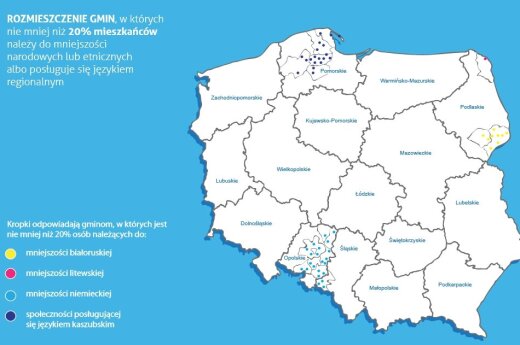- July 3, 2015
- 703
The spelling of Polish surnames on identity documents

The statement of Irena Gasparavičiūte, which was given to the Lithuanian public television LRT (Lietuvos Nacionalinis Radijas ir Televizija), has caused a few comments and fair refutation about false information that was within the statement. All the issue is about the lack of the possibility for the original spelling (in the native language) of Polish names and surnames that belong to the national minorities’ members. Hereafter, there is information from the Ministry of Administration and Digitisation of Poland, which is responsible for the relations with the ethnic and national minorities in Poland. It follows that there are no obstacles which would forbid the members of minorities spelling of their names and surnames with the usage of letters that do not belong to polish alphabet – denies the Polish Embassy in Vilnius.
For long time, even since before the age of computers, there have been in Poland practical possibilities of spelling the names of the national minorities’ representatives in documents with the usage of all the letters and diacritical marks characteristic for their mother tongue. From the Polish point of view, the problem is not about the blanks in the law nor the lack of conditions to use it properly, but it is the attitude of Polish citizens belonging to the national and ethnic minorities who would have to fully exploit the created conditions. It must be fairly admitted that the Lithuanians belong to those minorities which are able to make it well. Since the Ministry of Administration and Digitization often puts them as a model for other minorities. Nevertheless, there were additional measures needed in the approach toward the Lithuanian community in Poland. At the turn of 2012 and 2013, MAC conducted a campaign encouraging people belonging to the Lithuanian national minority to change their names and surnames into those which would suit the spelling of the Lithuanian language. Before the launch of the campaign, the issue had been consulted with the Ministry of the Interior, which is responsible for the issuance of various documents and spelling applied there. MAC drew attention to the Lithuanian diacritical signs and endings (various for men, married and unmarried women). Ministry of the Interior approved the content of the leaflets. As the instance, there were given all three forms of endings in Lithuanian names together with diacritical signs.
It must be noted that Polish citizens has only the right, not the duty, to the spelling of their names and surnames accordingly to the rules of their mother language. Poland can merely encourage people to adopt the law and it is actually what Poland does. The final decision on whether to use the right is up to a citizen. Information about these opportunities can be found on a special website maintained by the MAC, dedicated to the promotion of the minority and regional languages.
Last year, MAC run a campaign promoting the usage of the minority as well as the Kashubian language in which they reminded the local government about the rights of people belonging to the national and ethnic minorities to write their names and surnames accordingly to the spelling rules of their mother tongue. The brochure, which was handed to local authorities in paper form, is available on the MAC website.
Translated by Paulina Lipińska within the framework of a traineeship programme of the European Foundation of Human Rights, www.efhr.eu.

